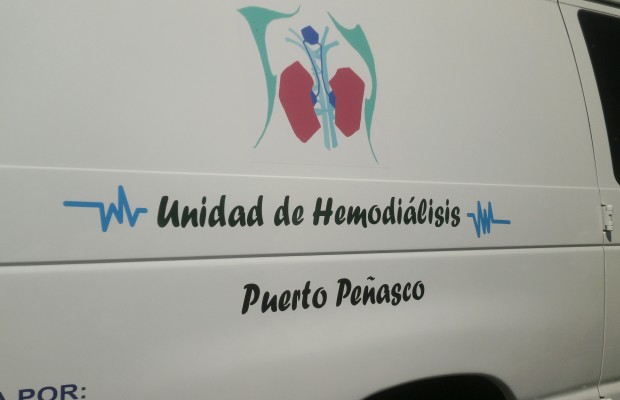We recently received questions at info@rockypoint360.com regarding the city’s first Dialysis clinic, which included those below:
When will the dialysis clinic open? What is the cost for older patients? Do they accept insurance (Seguro Popular)?
While we do not have concrete answers for all of these, we decided to sit down with Rafaela Félix, President of the clinic’s board, in order to hear more about how the project is coming along.
Félix indicates after acquiring a notice of operation, and registry with the Taxpayer Service Administration (SAT) so the clinic can offer tax-deductible receipts to donors, the Civil Association “Proyecto de Asistencia Comunitaria Integral” (Comprehensive Community Assistance Project) in charge of the Dialysis Project is now working on getting an electric generator in order to fulfill a necessity of the center, as well as to comply with overall regulations.
Félix remarked the center’s infrastructure and equipment itself stands at about 85% complete, though they are still lacking an electric generator for cases of emergency, along with some final details to equip the center. She pointed out once the clinic opens, it will first operate by providing solely private services while they work on obtaining subrogation status from the Mexican Social Security Institute (IMSS) so that it may receive IMSS patients directly.
“We put in our request for this to the IMSS delegate over a year ago,” explained Félix, “but we know these are processes that can take a long time. Hopefully this service will be available soon, just as there are dialysis clinics in Baja California that have obtained subrogation from IMSS.”
The Dialysis Center board President remarked the principal goal continues to be that of providing support for those in the region suffering from renal diseases, so they can receive help at the clinic and not have to travel extensively while facing higher expenses in seeking treatment. She highlighted there are some individuals who require treatment up to three times weekly.
Félix explained the board itself was formed as a way to carry out actions for the benefit of individuals requiring dialysis services, and that the association itself does not have its own economic resources.
“We know how expensive this service can be, which is why we formed a board,” she detailed, “We must work on assuring the service is humanitarian, providing it to those who suffer renal disease and who currently face the challenge of travel and expenses in having to go beyond Puerto Peñasco for this service.”
